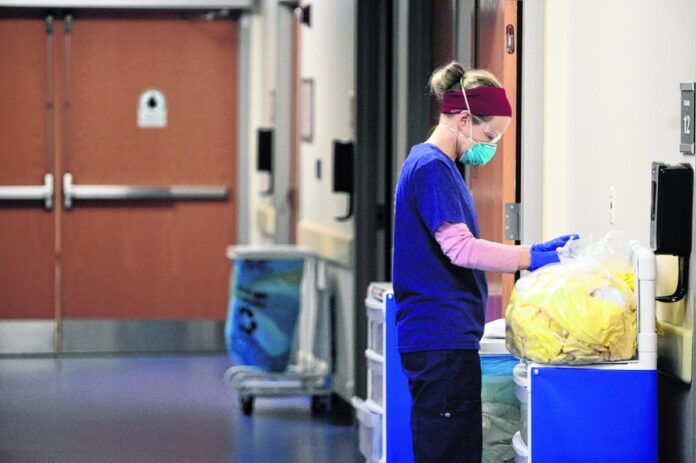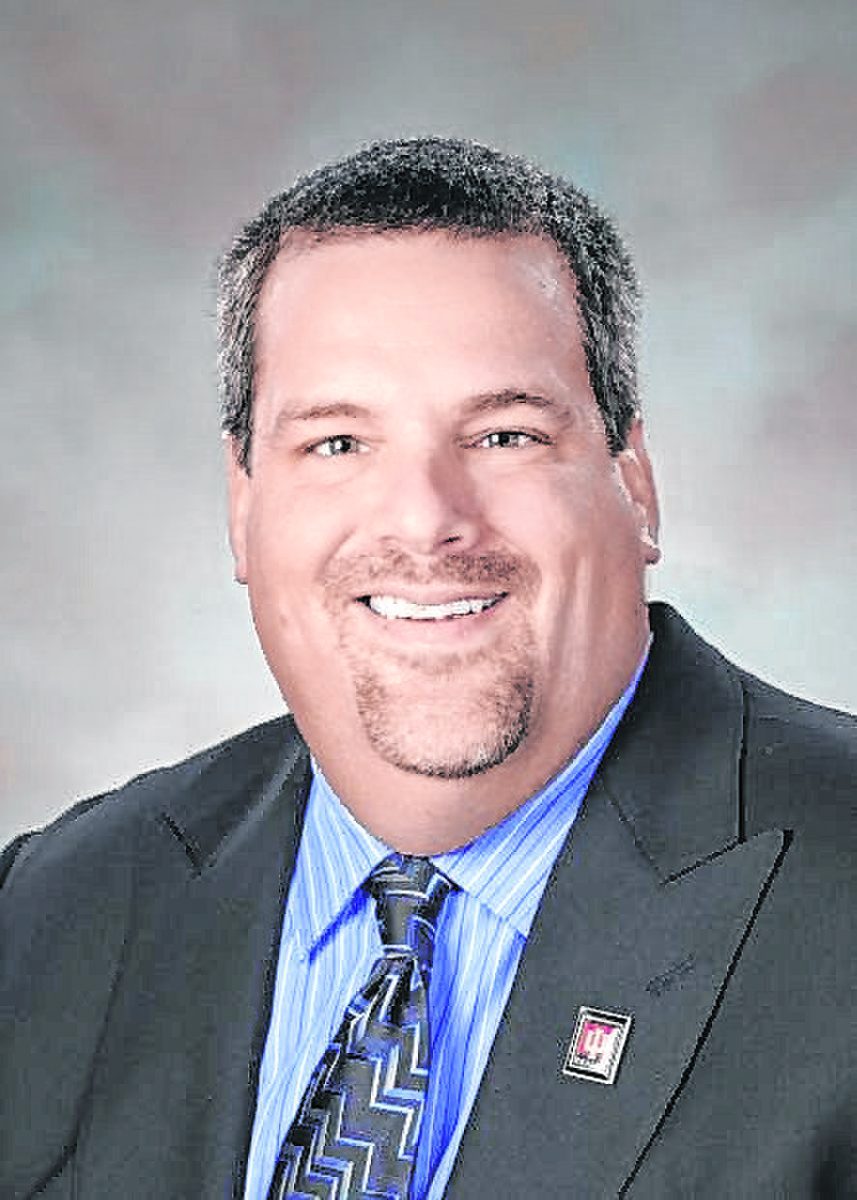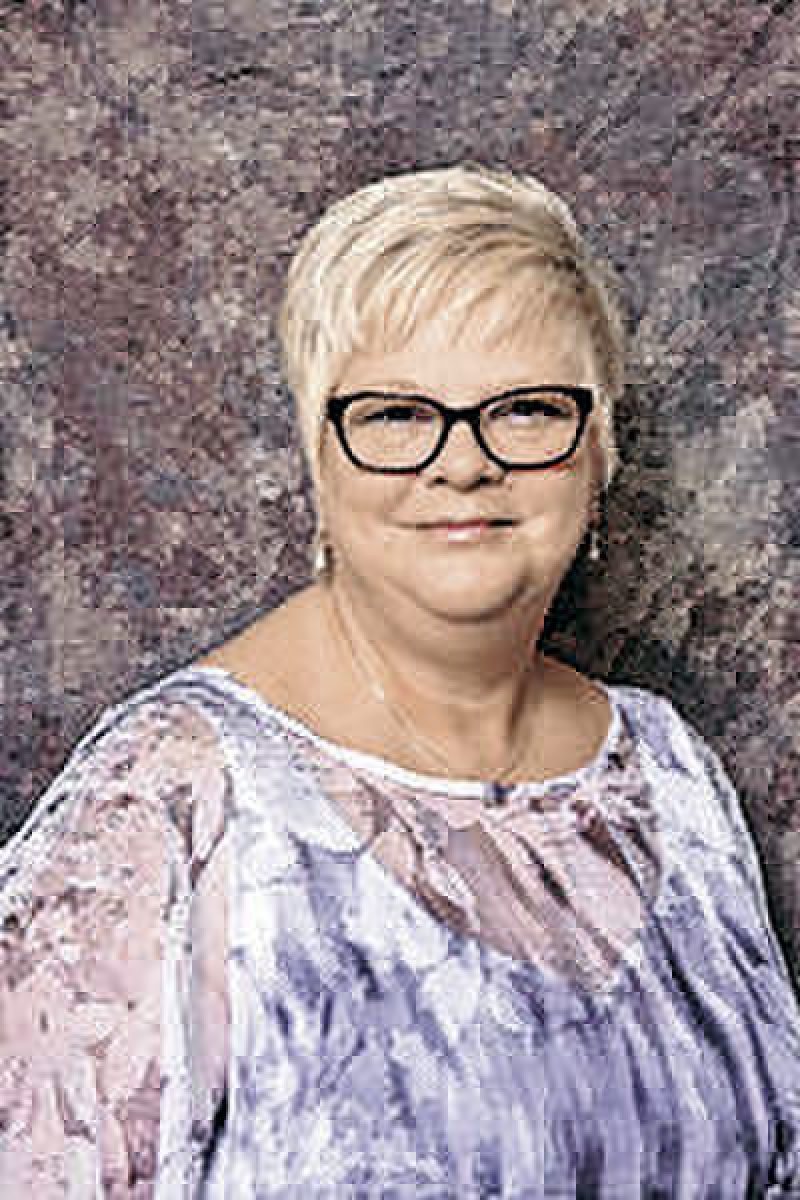
GREENFIELD — While nurses are known to be among the most noble and devoted professionals in the workforce, even they have their breaking point.
The past 18 months have been some of the most taxing times nurses have ever known, said Craig Felty, vice president, chief operating officer and chief nursing officer at Hancock Regional Hospital.
Felty said many nurses nationwide were making plans to retire before COVID hit but postponed their plans. Now, they’re more than ready to make good on those retirement plans.
More telling are those who have been driven to leave nursing earlier than they planned after spending nearly 18 months caring for patients battling COVID-19, which has killed more than 617,000 people in the United States since early 2020.

“Some are making a change because they just don’t have it in them anymore,” Felty said.
The Greenfield hospital is feeling the fallout from a nationwide nursing shortage that has gripped the country in the wake of COVID-19.
The pandemic that has left nurses feeling burned out and depleted is just one of the contributing factors to the shortage, said Felty, who has 27 years of nursing experience, mostly in emergency care
A nationwide shortage was already expected to hit around 2030, he said, since the average age of nurses in America is currently around 45. COVID has just pushed up that timeline.
On Monday, the hospital’s top nursing administrators gathered to talk about the shift that has left hospital leaders — both locally and nationally — scrambling to fill the void created by nurses who are leaving to find work elsewhere, or at least somewhere other than patients’ rooms.
Tamara Strunk, Hancock Regional’s assistant vice president of nursing, said even some of the most devoted nurses are ready to find a less stressful job, especially after being pushed to the limit after fighting in the trenches of a pandemic.

Caring for victims of a highly lethal virus is understandably taxing, she said, but add to that the constant fear of bringing the virus home to loved ones, and it can be downright debilitating.
Some are opting to move into full-time jobs that don’t require hands-on care for the sickest of patients, like office jobs, outpatient care or clinical care.
“We have a lot of nurses completely leaving the profession. I know one friend who was a nurse but is now working for her husband’s electrician business. There’s all kinds of stories like that that you hear,” Strunk said.
Her own daughter works in health care but made the shift to non-patient care in an effort to prevent exposing herself and her loved ones to COVID.
“She doesn’t want to be exposed to all of it all the time. There’s this real fear there among nurses that they don’t want to get themselves or a loved one sick, which is understandable,” said Strunk, a registered nurse with more than 25 years of experience.
As COVID cases skyrocketed and fears escalated last year, some nurses quit their day jobs to pursue “travel nursing,” providing health care in hard-hit communities.
“There were nurses making over $100 an hour traveling because of the demand. Hospitals were paying that much money to get nurses in their door because they had no choice,” said Felty, who understands the desire to follow the money while providing critical care.
“Since then, some nurses have been hired back, which has helped a little bit, but we don’t have enough new graduates coming out of school in order to offset the number of nurses we’re losing at the bedside,” he said.
Strunk thinks COVID has created a paradigm shift in just about everyone.
“People’s home lives are so important, and COVID maybe has shed even more of a light on that. They’ve learned they can get by with a lot less, and they may feel safer working in jobs that don’t involve hands-on care,” she said.
While many nurses continue to be called to the profession, “I think now it is the fear for our own health and the health of our loved ones that is pushing people away. That work-life balance has pushed people back out into the market for something that they consider safer, with better hours, or maybe a completely new career,” Strunk said.
Stephanie Long, director of emergency services at Hancock Regional Hospital, said the shift toward change isn’t unique to the local hospital, or to the health-care field in general, for that matter.
“COVID has done something culturally to shift our workforce, and you see it at fast food restaurants; you see it in every industry; you see it everywhere,” she said.
To counteract the number of nurses leaving the profession, Hancock Regional is enticing new nurses to join its ranks by offering a helping hand with the education, in addition to concentrating on being a welcoming place to work.
“We have a robust student nurse extern program where we hire them while they’re in nursing school as student nurse externs and help develop them through the program,” said Adam Wilhelm, the hospital’s director of nursing administration and clinical education.
While different degrees of nursing can require anything from a bachelor’s degree or associate’s degree or a high school diploma, Wilhelm said hospitals are learning to cast a wider net to fill the slots left open by outgoing professionals.
“There are times hospitals prefer a higher bachelor’s degree, but right now we’re focused on bringing in (registered nurses) through any path that leads to an RN license,” he said.
Felty said the hospital remains dedicated to delivering excellent patient care. “Our first goal is always to our patients. We’re going to do everything we can do in order to ensure the patients don’t see any type of concerns or issues in their quality of care,” he said.
To recruit nurses, Hancock Regional has partnered with Ivy Tech to offer students the chance to earn an associates of nursing degree for free.
Felty is currently working to create a package that will be valued at $10,000 to $15,000 per student, including tuition, book fees and a weekly stipend to help with expenses.
Students will have the opportunity to take their clinicals at Hancock Regional, and must agree to work at the hospital for three years upon graduation.
“That’s in its infancy stages right now — we’re still working out the specifics — but we’re pretty pumped about it. We’re thinking it’s going to be part of the solution” to the nursing shortage, said Felty, who hopes to launch the program when students return to school in a few weeks.
Felty said he thinks Hancock Regional’s small size and family-like atmosphere will help to retain incoming nursing graduates over time.
“We definitely think we have an advantage here because of our culture. Because Hancock Health is a smaller hospital, you’re able to get to know your employees and fellow colleagues. Speaking as someone who has worked in large institutions, that really makes a difference,” he said.
Hancock Regional administrators were already braced for the predicted nursing shortage to come in 2030, said Felty, and that foresight has helped the hospital to sustain itself in the wake of the pandemic.
“We’ve been able to hold our own and tread water,” he said.
“No matter what, nurses will always be there for their patients. Here at Hancock we have an unbelievable group of nurses who come every day to take care of others and to treat others as they treat their own.”
Wilhelm said the public can help ease the overwhelming workload: They can get the COVID-19 vaccine and slow the spread of the virus.
“If it wasn’t for our COVID population, we wouldn’t feel the strain as hard as we do. We are seeing needless suffering right now, so we’re imploring everyone to get the shot,” he said.
[sc:pullout-title pullout-title=”Pull Quote” ][sc:pullout-text-begin]
“People’s home lives are so important, and COVID maybe has shed even more of a light on that. They’ve learned they can get by with a lot less, and they may feel safer working in jobs that don’t involve hands-on care.”
Tamara Strunk
assistant vice president of nursing, Hancock Regional Hospital
[sc:pullout-text-end][sc:pullout-title pullout-title=”Pull Quote” ][sc:pullout-text-begin]
“Some (nurses) are making a change because they just don’t have it in them anymore.”
Craig Felty
vice president, chief operating officer and chief nursing officer, Hancock Regional Hospital
[sc:pullout-text-end][sc:pullout-title pullout-title=”At a glance” ][sc:pullout-text-begin]
A nursing shortage is impacting hospitals and health-care facilities nationwide, including Hancock Regional Hospital in Greenfield.
Industry experts say the shortage was inevitable given the increasing average age of nurses in the workforce, but it has been accelerated by burnout brought on by treating patients with COVID-19 over the past 18 months.
According to the American Nurses Association:
–There will be far more registered nurse jobs available than any other profession by 2022.
–Over the past decade, the average age of employed RNs has increased by nearly two years, from 42.7 years in 2000 to 44.6 years in 2010.
–With more than 500,000 seasoned RNs anticipated to retire by 2022, the U.S. Bureau of Labor Statistics projects the need for 1.1 million new RNs for expansion and replacement of retirees, and to avoid a further nursing shortage.
–These factors, combined with an anticipated strengthening of the economy, will create a renewed critical shortage for nurses.
Source: American Nurses Association, (nursingworld.org)
[sc:pullout-text-end]




